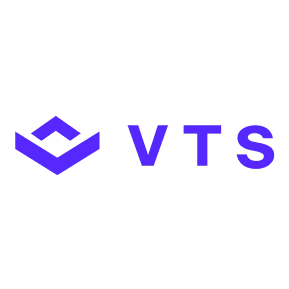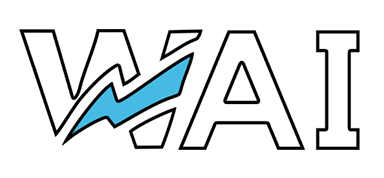
Brands That Love Us

Why Choose IT Offshoring Services for Your Business Growth?
Embark on the journey of success with our IT offshoring services. It's an art of efficiency, expertise, and custom solutions that redefine the dynamics of your business. By tapping into a pool of skilled professionals, we ensure precision in project execution. Whether you're aiming for cost efficiency, operational scale-up, or access to specialized talent, our services have got you covered. Let's not just outsource; let's craft a partnership shaping your business landscape.
Why Opt For Our Services?
Catapult your tech landscape with Ajackus, your offshore IT confidant. Ignite progress through inventive solutions, adept teams, and groundbreaking strategies, securing unmatched success.
- Content Management Systems (CMS)
- IT Governance and Risk Management
- Network Security Solutions
- Software as a Service (SaaS) Implementation
- IT Outsourcing Advisory Services
- IT Vendor Management
- Mobile Device Management (MDM)
- IT Capacity Planning and Scaling
- IT Disaster Recovery as a Service (DRaaS)
- Cloud Migration Strategy and Planning
- IT Procurement Services
- IT Cost Optimization and Management
Why Choose Our Software Development?
Trust us with your IT services for refined software projects. Experience excellence, innovation, and streamlined solutions with our dedicated expertise.

Reliability
Rely on our outsourced IT services for consistent and dependable tech support, ensuring uninterrupted business operations.

Innovation
Stay ahead with innovative solutions from our outsourced IT team, integrating the latest technologies for sustained competitiveness.

Risk Mitigation
Minimize IT-related risks with our outsourced services, leveraging our expertise to navigate potential challenges effectively.

24/7 Support
Enjoy around-the-clock IT support, addressing issues promptly and ensuring your systems are always up and running.
What our Clients are Saying


FAQs
Maintaining a high level of team morale and motivation within a globally dispersed software development team requires intentional strategies. Implement regular virtual team-building activities to foster camaraderie and strengthen interpersonal connections. Recognize and celebrate achievements, both individual and team-based, to instill a sense of accomplishment. Encourage open communication channels where team members can share successes, challenges, and ideas. Provide opportunities for skill development and career growth, demonstrating a commitment to the professional advancement of each team member. Additionally, offer flexibility in work schedules to accommodate different time zones, promoting a healthy work-life balance. By prioritizing team well-being and engagement, organizations can sustain a positive and motivated global software development team.
Effectively managing project timelines and deadlines when collaborating with an offshore software development team involves meticulous planning, clear communication, and agile project management practices. Begin by establishing realistic timelines, considering factors such as development complexity, potential challenges, and resource availability. Utilize project management tools that facilitate real-time tracking of tasks, milestones, and progress. Conduct regular status meetings to review project timelines, discuss potential bottlenecks, and adjust schedules as needed. Foster a culture of transparency, where the offshore team feels comfortable communicating any challenges that may impact deadlines. Implement agile methodologies, such as Scrum or Kanban, to enhance adaptability and responsiveness to changing project requirements. By combining strategic planning with effective communication, organizations can successfully manage project timelines and meet deadlines when collaborating with an offshore software development team.
Ensuring the security and protection of intellectual property when working with offshore software developers requires a multi-faceted approach. Begin by conducting thorough due diligence on the offshore software development provider, assessing their reputation, security practices, and adherence to legal and ethical standards. Clearly define intellectual property rights and confidentiality clauses in contractual agreements, specifying ownership, usage restrictions, and data protection measures. Implement secure coding practices and version control systems to safeguard the codebase. Regularly conduct security audits and assessments, both internal and external, to identify and address vulnerabilities. Consider utilizing escrow agreements or legal mechanisms to reinforce intellectual property protection. By combining legal safeguards with robust technical measures, organizations can confidently protect their intellectual property when collaborating with offshore software developers.
Promoting knowledge transfer and skill development within a globally distributed software development team involves creating structured learning opportunities and a collaborative environment. Establish a mentorship program where experienced team members can share their knowledge with newer members. Encourage participation in relevant conferences, webinars, and training sessions to stay updated on industry trends and technologies. Utilize cross-functional teams to foster skill diversity and knowledge exchange. Implement knowledge-sharing platforms and documentation practices to capture and disseminate best practices and lessons learned. Provide access to online learning resources and certification programs to support continuous skill development. By actively promoting a culture of learning and collaboration, organizations can enhance knowledge transfer and skill development within their globally distributed software development team.
Effectively evaluating the cultural fit of an offshore software development partner involves assessing alignment with values, communication styles, and collaboration preferences. Start by clearly defining your organization’s values and cultural expectations. During the selection process, prioritize partners who demonstrate a cultural alignment with your organization through their communication, approach to problem-solving, and work ethics. Conduct virtual or in-person meetings to gauge how well the offshore team integrates with your organizational culture. Request references from previous clients to gain insights into the offshore partner’s cultural compatibility. Engage in open and honest communication about expectations, collaboration models, and potential challenges related to cultural differences. By taking a holistic approach to cultural assessment, organizations can ensure a strong cultural fit with their chosen offshore software development partner.

















































